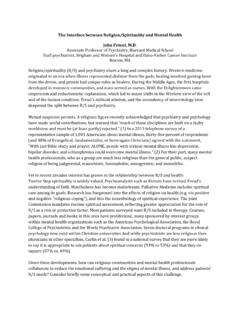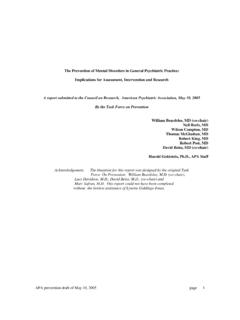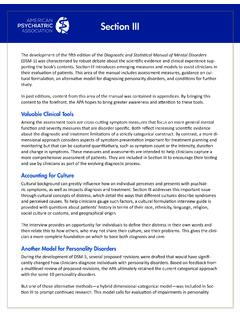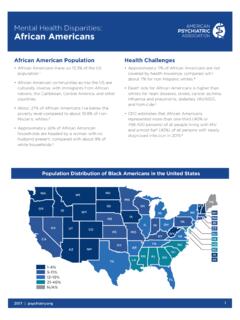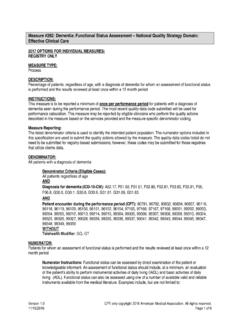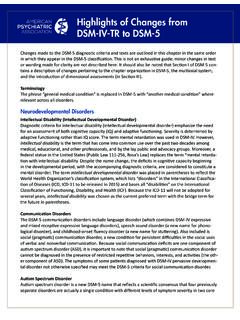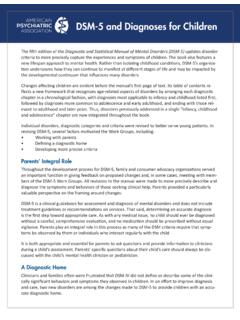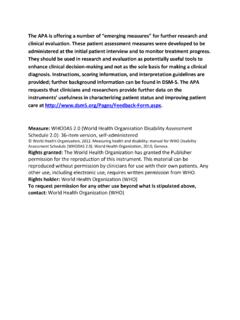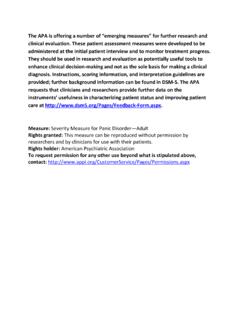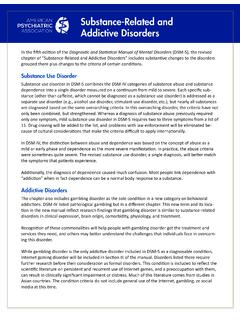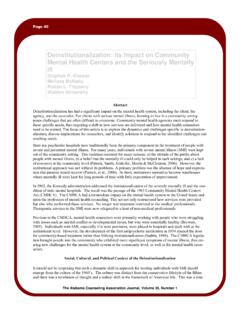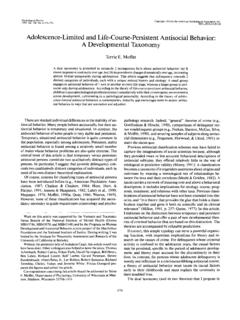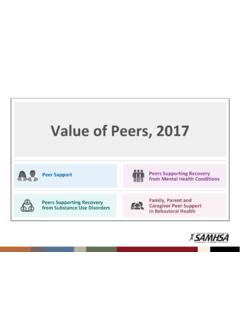Transcription of Persistent depressive disorder - psychiatry.org
1 Persistent depressive disorder In the upcoming text revision of the fifth edition of the Diagnostic and Statistical Manual of mental Disorders (DSM-5-TR), the parenthetical dysthymia is removed from Persistent depressive disorder . In addition, the extraneous specifiers in Persistent depressive disorder were eliminated. Rationale for Change parenthetical dysthymia : Persistent depressive disorder in DSM-5 and DSM-5-TR is defined as a 2- year (or longer) period of depressed mood, most of the day, for more days than not. Including dysthymia in parenthesis after Persistent depressive disorder is hence misleading and potentially confusing. The term dysthymia is a remanent of dysthymic disorder in DSM-IV, which imposed a limit on the severity of the depression by requiring that the depression not meet the criteria for a major depressive episode at any time during the first two years. Consequently, while all cases of DSM-IV dysthymia would be diagnosed as Persistent depressive disorder in DSM-5, it is not the case that all cases of DSM-5 and DSM-5-TR Persistent depressive disorder would have been diagnosed as dysthymic disorder in DSM-IV.
2 In addition to removing dysthymia following the name of Persistent depressive disorder , the termis also eliminated from the criteria sets/definitions for: Disruptive mood dysregulation disorder Premenstrual dysphoric disorder Specifier definition section for the with anxious distress specifier at end of depressive disorders chapter Text of various chapters DSM-5-TR classification and code listings Specifiers: The criteria set for Persistent depressive disorder in DSM-5 listed seven out of the eight specifiers that apply to major depressive disorder (with anxious distress, with mixed features, with melancholic features, with atypical features, with mood-congruent psychotic features, with mood- incongruent psychotic features, and with peripartum onset). However, per the definitions of these specifiers, only the anxious distress specifier and the atypical features specifier are explicitly applicable to Persistent depressive disorder . In DSM-5-TR, the extraneous specifiers were eliminated, as approved by the DSM Steering Committee, and the APA Assembly and Board of Trustees.
3 DSM is the manual used by clinicians and researchers to diagnose and classify mental disorders. The American Psychiatric Association (APA) will publish DSM-5-TR in 2022. APA is a national medical specialty society whose more than 37,400 physician members specialize in the diagnosis, treatment, prevention, and research of mental illnesses, including substance use disorders. Visit the APA at For more information, please contact APA Communications at 202-459-9732 or 2022 American Psychiatric Associatio
